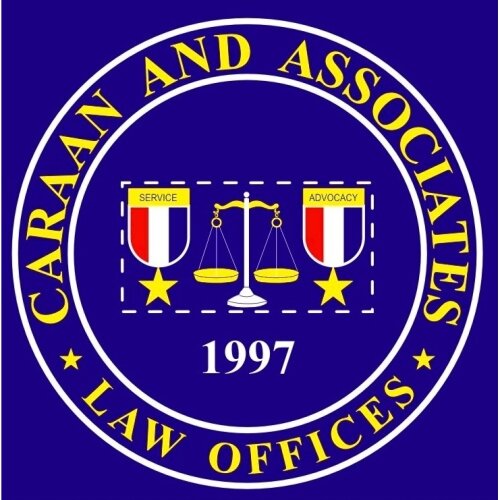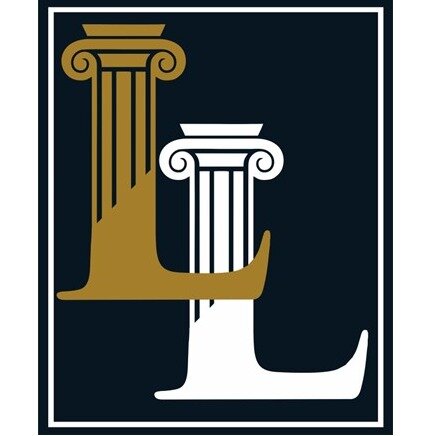Best Employer Lawyers in Manila
Share your needs with us, get contacted by law firms.
Free. Takes 2 min.
List of the best lawyers in Manila, Philippines
About Employer Law in Manila, Philippines
The field of Employer Law in Manila, Philippines, encompasses a variety of legal aspects involving the relationship between employers and employees. This arena deals with employment contracts, labor rights, workplace policies, and the registration and conduct of businesses in relation to labor standards. The country's laws are heavily influenced by the Labor Code of the Philippines, which serves as the foundational legal framework governing employer-employee relationships in the city. These laws are designed to ensure fairness, protect workers’ rights, establish safe work conditions, and mediate employer obligations.
Why You May Need a Lawyer
There are numerous situations where seeking legal advice regarding employer laws in Manila may be necessary. Legal assistance can be invaluable for drafting and reviewing employment contracts to ensure they comply with local laws and protect your interests. Employers may also need a lawyer when facing disputes such as wrongful termination, discrimination cases, employee grievances, or when dealing with the complexities of labor regulations and compliance issues. Furthermore, legal counsel is crucial when launching business operations to ensure adherence to employment standards and laws.
Local Laws Overview
Understanding the local laws relevant to employers in Manila is essential for both employees and employers. The Labor Code of the Philippines acts as the primary source of employment law, setting standards for minimum wage, working hours, and employee benefits. It mandates guidelines for occupational safety, labor unions, and dispute resolution mechanisms. Additionally, the laws address specific hiring practices, termination procedures, and provide regulations on employees' welfare and rights, such as maternity leave and separation pay. Businesses must also comply with regulations from agencies such as the Department of Labor and Employment (DOLE).
Frequently Asked Questions
What are the basic requirements for an employment contract?
An employment contract should clearly outline the job duties, salary, working hours, benefits, and terms of termination. It must comply with the Labor Code and provide a fair agreement for both parties.
Can an employer terminate an employee without cause?
Under the Philippine employment law, an employee cannot be terminated without a valid or authorized cause. Termination procedures must comply with due process requirements.
What is the minimum wage in Manila?
The minimum wage in Metro Manila is periodically reviewed by the Regional Tripartite Wages and Productivity Board. Employers need to keep updated with changes to the rates.
What are the rules regarding overtime pay?
Employees who work beyond the standard 8 hours a day are entitled to overtime pay, which is usually 125% of the regular wage for ordinary days and higher for holidays and rest days.
What constitutes wrongful termination?
Wrongful termination occurs when an employee is dismissed without just or authorized cause, or when due process is not observed. Legal remedies are available in such cases.
Are employers required to provide health benefits?
Yes, employers are required to provide government-mandated benefits such as PhilHealth (national health insurance), SSS (Social Security System), and Pag-IBIG (Home Development Mutual Fund) contributions.
How important is compliance with labor laws?
Compliance with labor laws is crucial to avoid legal disputes, financial penalties, and to maintain a good reputation. Non-compliance can also lead to operational disruptions.
What should I do if I face discrimination at work?
If you experience discrimination, it's important to document the incidents and seek legal advice. Filipino law prohibits workplace discrimination and provides remedies for affected employees.
Can an employer change the terms of employment contracts unilaterally?
No, any changes to an employment contract must be mutually agreed upon by both employer and employee to be valid and enforceable.
How can I resolve a labor dispute?
Labor disputes can be resolved through mediation, conciliation, or filing a case with the National Labor Relations Commission (NLRC). Legal assistance may be helpful to navigate these processes.
Additional Resources
For further legal information and support, individuals may consult or visit agencies such as the Department of Labor and Employment (DOLE), the National Labor Relations Commission (NLRC), or the Integrated Bar of the Philippines (IBP). These organizations offer resources, legal clinics, and guidance for employers and employees seeking to understand and navigate employment laws in Manila.
Next Steps
If you require legal assistance concerning employer law in Manila, it is advisable to consult with a qualified employment lawyer or contact a reputable law firm with experience in labor law. Gather relevant documents and information regarding your case and seek a professional consultation to understand your legal options. Taking timely legal advice can help protect your rights and guide you in resolving issues effectively.
Lawzana helps you find the best lawyers and law firms in Manila through a curated and pre-screened list of qualified legal professionals. Our platform offers rankings and detailed profiles of attorneys and law firms, allowing you to compare based on practice areas, including Employer, experience, and client feedback.
Each profile includes a description of the firm's areas of practice, client reviews, team members and partners, year of establishment, spoken languages, office locations, contact information, social media presence, and any published articles or resources. Most firms on our platform speak English and are experienced in both local and international legal matters.
Get a quote from top-rated law firms in Manila, Philippines — quickly, securely, and without unnecessary hassle.
Disclaimer:
The information provided on this page is for general informational purposes only and does not constitute legal advice. While we strive to ensure the accuracy and relevance of the content, legal information may change over time, and interpretations of the law can vary. You should always consult with a qualified legal professional for advice specific to your situation.
We disclaim all liability for actions taken or not taken based on the content of this page. If you believe any information is incorrect or outdated, please contact us, and we will review and update it where appropriate.

















